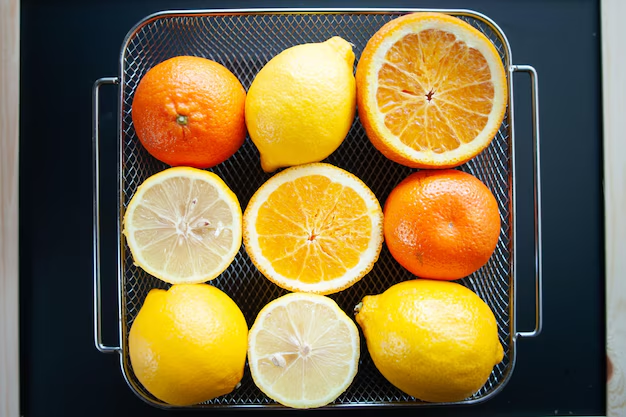How Long Can You Keep Lemons Fresh in Your Refrigerator?
Few kitchen staples are as versatile as lemons. Whether adding zest to a dish, balancing flavors, or standing out in a refreshing drink, lemons are an indispensable part of culinary adventures. However, like all fresh produce, they come with a shelf life, especially when stored in the refrigerator. If you're wondering how long your citrus treasures can last before they sour, then you're in the right place!
Why Store Lemons in the Refrigerator?
Before diving into specific timelines, it's important to understand why refrigeration is beneficial for lemons. Refrigeration slows down the ripening process, which helps extend the life of your lemons. The cooler temperatures reduce moisture loss and microbial activity, two significant factors that can lead to spoilage. By keeping lemons cold, you're effectively preserving their flavor, juiciness, and nutritional value for a longer period.
How Long Do Lemons Last in the Refrigerator?
If stored correctly, lemons can last a surprisingly long time in the refrigerator. Typically, lemons can remain fresh for about three to four weeks when stored under optimal conditions. This timeline assumes proper storage methods, such as using sealed containers or bags to prevent dehydration and exposure to other odors.
However, it's critical to recognize that several factors, like the initial freshness of the lemon when purchased and any pre-existing damage, can impact its longevity.
Signs of a Spoiled Lemon
Understanding when a lemon is no longer suitable for use is essential to prevent unintentional food waste or the consumption of a spoiled product. Here are some key signs of spoilage to watch for:
- Softness or mushiness: A fresh lemon should be firm. If it feels soft or overly squishy, it may be past its prime.
- Discoloration: Dark spots or a dull appearance are indicators that the lemon is starting to spoil.
- Mold: White, blue, or green mold is a definitive sign of spoilage and means the lemon is not safe to consume.
- Unpleasant odor: A sour or fermented scent is a clear indication of deterioration.
These factors can help you determine when it’s time to dispose of your lemons.
Tips for Storing Lemons in the Refrigerator
To maximize the freshness and shelf life of your lemons, consider the following storage tips:
1. Leave Them Whole
Whole lemons last longer than those that have been cut. If you don’t need the entire lemon, store the unused portion in a sealed container or plastic wrap.
2. Use a Crisper Drawer
The crisper drawer in your refrigerator maintains optimal humidity levels that help prolong the freshness of your lemons.
3. Avoid Stacking
Ensure adequate air circulation by laying the lemons in a single layer instead of stacking them. This helps them stay fresh longer.
4. Keep Them Dry
Any dampness can encourage mold growth, so make sure your lemons are dry before placing them in the refrigerator.
Can You Freeze Lemons?
Yes, freezing lemons is an excellent option for extending their shelf life even further. Frozen lemons can last between four to six months. Whether you want to freeze whole lemons, slices, or lemon juice, the freezer locks in flavor and nutritional value. Here’s how you can prepare lemons for freezing:
Freezing Whole Lemons
- Wash and dry the lemons thoroughly.
- Place them in a freezer-safe bag, removing as much air as possible.
- When you're ready to use them, thaw the lemons in the refrigerator or at room temperature.
Freezing Lemon Slices
- Slice the lemons to your desired thickness.
- Lay the slices on a baking sheet and freeze until solid.
- Transfer the frozen slices to a freezer-safe bag for storage.
Freezing Lemon Juice
- Juice the lemons and pour the juice into ice cube trays.
- Once frozen, place the lemon juice cubes into a sealed bag for easy usage.
The Nutritional Value of Lemons
Understanding the nutritional value of lemons underscores the importance of keeping them fresh. Rich in vitamin C, lemons are excellent for boosting immunity, which is why ensuring their freshness can contribute positively to your health. They also provide a good source of dietary fiber and contain several beneficial plant compounds.
Practical Summary: Keeping Your Lemons Fresh 🍋
- Purchase Tip: Choose firm, bright yellow lemons with smooth skin.
- Storage Tip: Keep lemons whole for longer shelf life in the refrigerator.
- Shelf Life: Typically lasts 3-4 weeks in the fridge.
- Freezing Option: Extend shelf life by freezing whole, sliced, or juiced lemons.
- Freshness Check: Look for firmness, absence of mold, and a pleasant scent.
- Nutrition Highlight: Rich in vitamin C and dietary fiber beneficial for health.
These considerations will help you enjoy lemons longer, reducing waste, and ensuring they can zest up your meals whenever you wish.
Caring for your lemons in the right way ensures they remain a delightful and healthy addition to your kitchen. From extending fridge storage life to freezing methods, these strategies offer a practical approach for maintaining freshness. By recognizing when lemons are reaching their end in terms of edibility, you can effectively avoid wasted produce and savor the zest and tang that lemons bring to culinary creations. Keep these tips handy to ensure that the next time you reach for a lemon, it's as fresh and flavorful as you intended!

